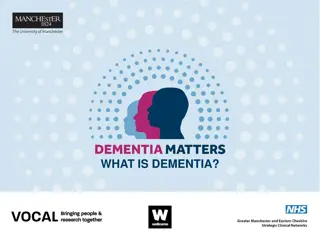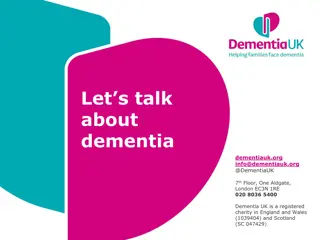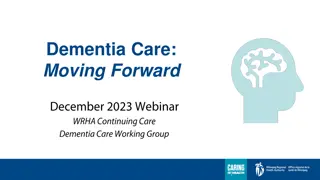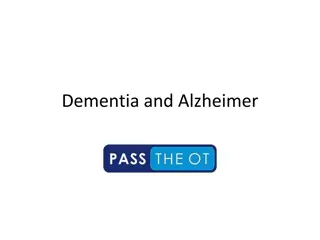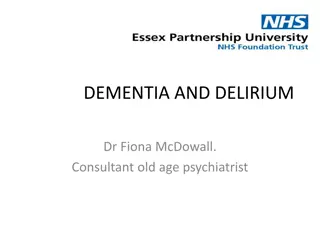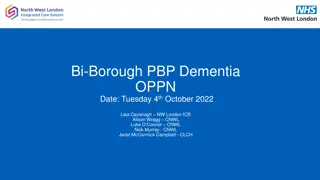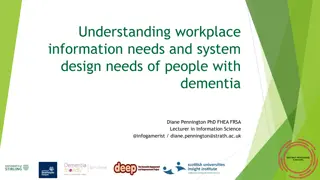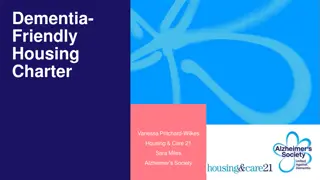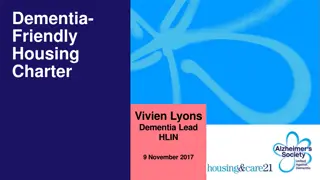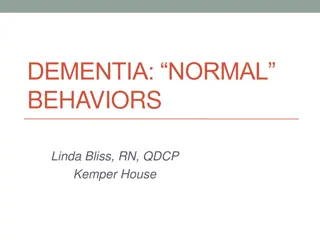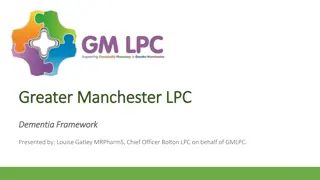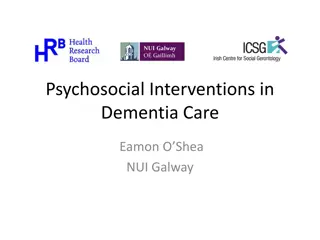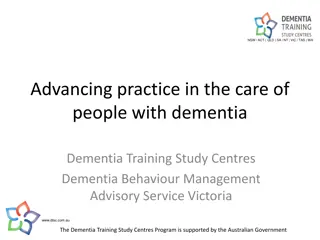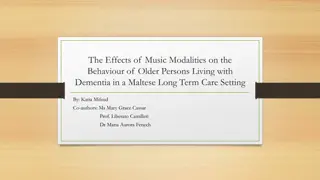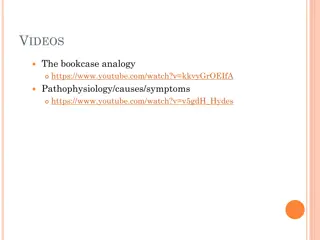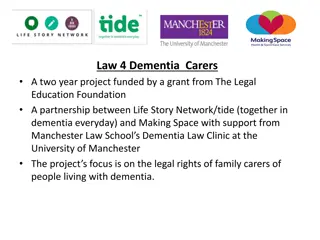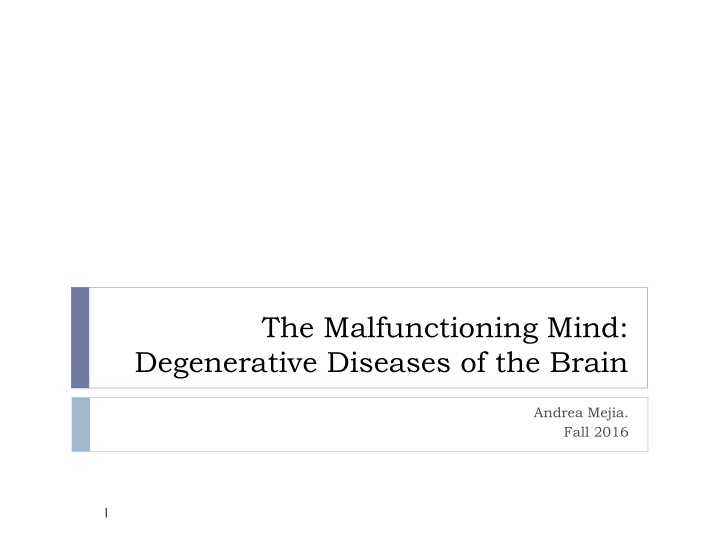
Understanding Degenerative Dementia: Causes and Effects
Explore the complexities of degenerative dementia, including Alzheimer's disease, through discussions on normal aging, defining dementia, genetic factors, neuropathology, and epidemiology. Learn about the differences between degenerative and non-degenerative dementia, and gain insights into the diagnostic criteria and associated features of Alzheimer's disease.
Download Presentation

Please find below an Image/Link to download the presentation.
The content on the website is provided AS IS for your information and personal use only. It may not be sold, licensed, or shared on other websites without obtaining consent from the author. If you encounter any issues during the download, it is possible that the publisher has removed the file from their server.
You are allowed to download the files provided on this website for personal or commercial use, subject to the condition that they are used lawfully. All files are the property of their respective owners.
The content on the website is provided AS IS for your information and personal use only. It may not be sold, licensed, or shared on other websites without obtaining consent from the author.
E N D
Presentation Transcript
The Malfunctioning Mind: Degenerative Diseases of the Brain Andrea Mejia. Fall 2016 1
Defining: Normal aging Declining abilities Cognitive processing speed Fluid intelligence Divided attention Learning efficiency Source memory Visuoperceptual functioning Stable (improved?) abilities Crystallized intelligence = learned knowledge and experiences 2
Defining: Dementia Loss of intellectual capacity and/or personality Due to loss and/or damage of neurons Prevalence increases with age 3
Degenerative Dementia Intrinsic to the nervous system and affect certain neural systems selectively Presumed to have a degree of genetic transmission Alzheimer s, Parkinson s, frontotemporal dementia, etc 4
Nondegenerative Dementia Diverse etiologies, including vascular, endocrine, inflammatory, nutritional deficiency, and toxic conditions Infectious dementia (AIDS dementia), demyelinating dementia (multiple sclerosis), chronic alcohol or drug abuse (Korsakoff s syndrome), etc. 5
Alzheimers Disease: Diagnostic Criteria and Associated Features DSM-IV-TR: Memory impairment +1 Language, motor, object recognition, executive functioning 6
Alzheimers Disease: Epidemiology Most common dementia Increasing prevalence Higher prevalence With age Developing nations Women African Americans, Hispanics Survival 2-20 years from diagnosis 7
Alzheimers Disease: Genetic Factors Family history = risk factor Esp. with early onset Three identified genes still many ?s Having a gene doesn t mean you will acquire Alzheimer s...or vice versa Down syndrome Neuropathological changes consistent with AD By age 40 in most 8
Alzheimers Disease: Neuropathology Neuronal loss with cortical neuronal shrinkage Correlates with dementia severity Generalized cortical atrophy Sulcal widening, gyral atrophy Increased ventricular size 9
Alzheimers Disease: Neurocognitive Profile Memory Episodic memory impairment Begins with recent memories Language Word-finding difficulties Grammar and syntax less and less complex Visuospatial functioning Disorientation in familiar places Object misplacement 11
Alzheimers Disease: Neurocognitive Profile In later stages: Executive dysfunction Planning, sequencing, abstracting Agnosia Recognizing objects Apraxia Learned motor acts 12
Alzheimers Disease: Other symptoms Depression Apathy and agitation Anxiety and delusions (often paranoid) Later stages Visual hallucinations Very advanced stages 13
Neuropsychological Testing of Alzheimers Patients Digit Symbol Block design Clock drawing Object naming Memory Deficits on tests of both left and right hemisphere function Not marked by sudden onset 14
Alzheimers Disease: Neuroimaging Structural neuroimaging (MRI, CT) Cortical atrophy Esp. temporal structures (e.g., Hippocampus) Problem: Overlap with other dementias, normal aging 15
Alzheimers Disease: Neuroimaging Functional neuroimaging (fMRI, PET, SPECT) Reduced activation of multiple regions Temporal Parietal 16
Alzheimers Disease: Treatment Other treatment strategies besides medications Manage depression, anxiety, sleep, psychosis Caregiver support!!! http://www.youtube.com/watch?v=q1BkfV2h09g 17

